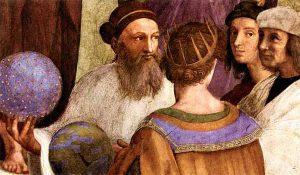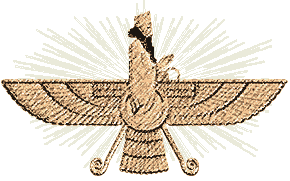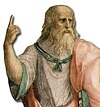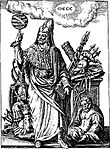Zoroaster: The Persian Monotheist
Zoroaster was a Persian monotheistic teacher who is reputed to be the first spiritual preacher who proposed that there is only one supreme being who he called Ahura Mazda. In the Persian language, Ahura Mazda is translated as meaning “mighty wisdom” or “lord of wisdom”.
According to some Greek historians, Zoroaster lived approximately 600BC However, under his Persian name, ‘Zarathustra”, he is recorded to have lived around 6000BC and has a large body of written works attributed to him.
The Persian Gathas attributed to Zarathushtra were written in a language similar to Sanskrit and the Rig-Vedas of Indian tradition.
In the Gathas, Zoroaster sees the human condition as the mental struggle between asa (truth) and druj (lie). The cardinal concept of asa – which is highly nuanced and only vaguely translatable – is at the foundation of all Zoroastrian doctrine, including that of Ahura Mazda (who is asa), creation (that is asa), existence (that is asa) and as the condition for Free Will, which is arguably Zoroaster’s greatest contribution to religious philosophy.
The purpose of humankind, like that of all other creation, is to sustain asa. For humankind, this occurs through active participation in life and the exercise of constructive thoughts, words and deeds.
Elements of Zoroastrian philosophy entered the West through their influence on Judaism and Middle Platonism and have been identified as one of the key early events in the development of philosophy. Among the classic Greek philosophers, Heraclitus is often referred to as inspired by Zoroaster’s thinking. Contemporary Zoroastrians often point to the similarities between Zoroaster’s philosophy and the ideas of Baruch Spinoza. Zoroasterism was a major religious and philosophical system of belief that spread across Persia into Egypt and the Indian continent.
Zarathustra is regarded as the first source of knowledge on astrology and the magical arts. As a magi, he taught the healing practices and performed religious ceremonies.
The belief that Ahura Mazda was the supreme being who created all things, good and evil, soon devolved into a dualist belief that good and evil were seperated into two beings who were in conflict with each other.
According to mythical belief, Ahura Mazda was an alien god possibly from the Plieades along with Mithra and Anahita. They are depicted as arriving in ‘spaceship’ type craft to communicate with Zarathustra. He is also pictured travelling in a spaceship type craft travelling to meet with the god Ahura Mazda.
As such, Zarathustra’s (Zoroaster) philosophy could be the basis on which all monotheistic belief is based. And is regarded as being the source of most religious beliefs that exist on this planet into the modern age.




